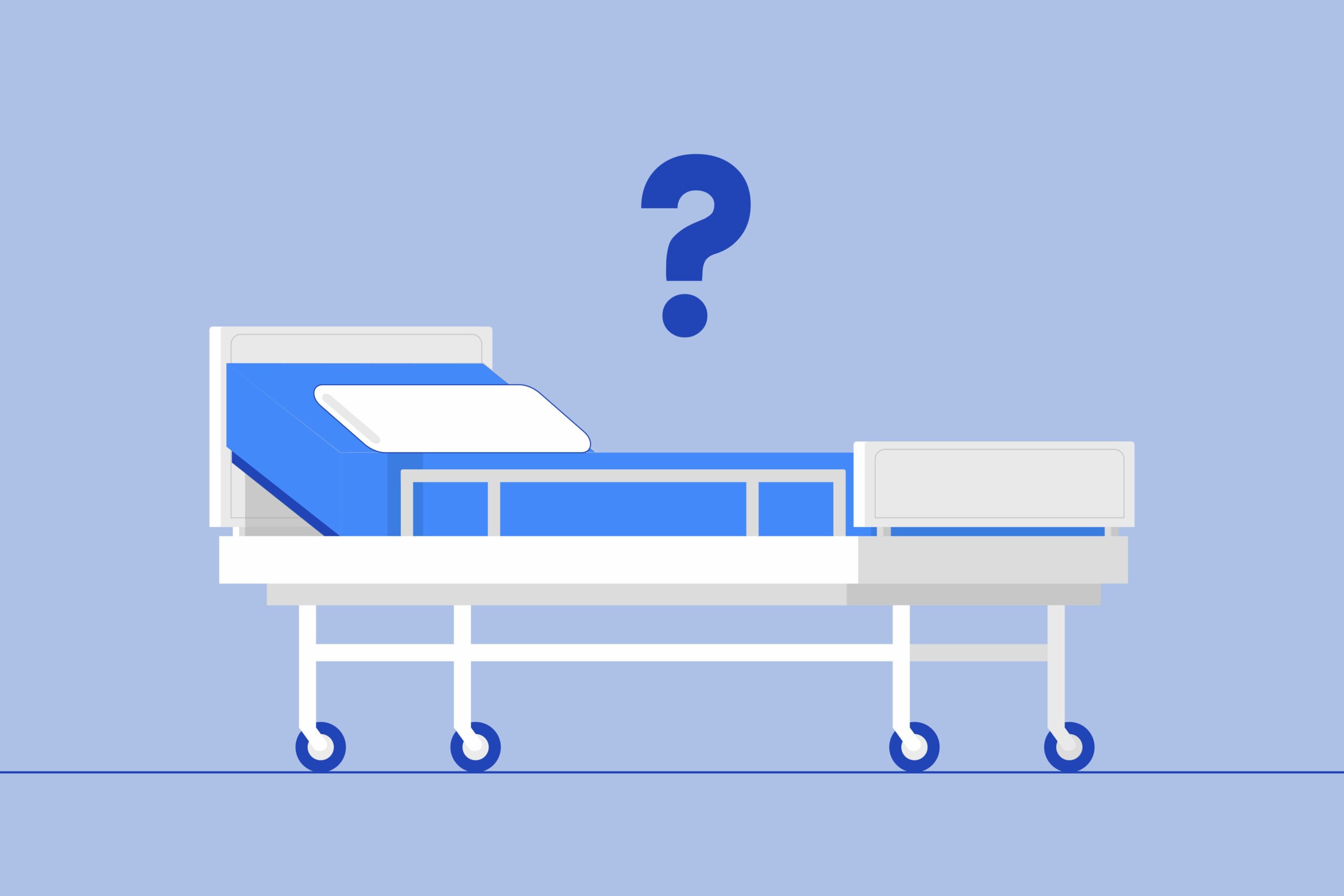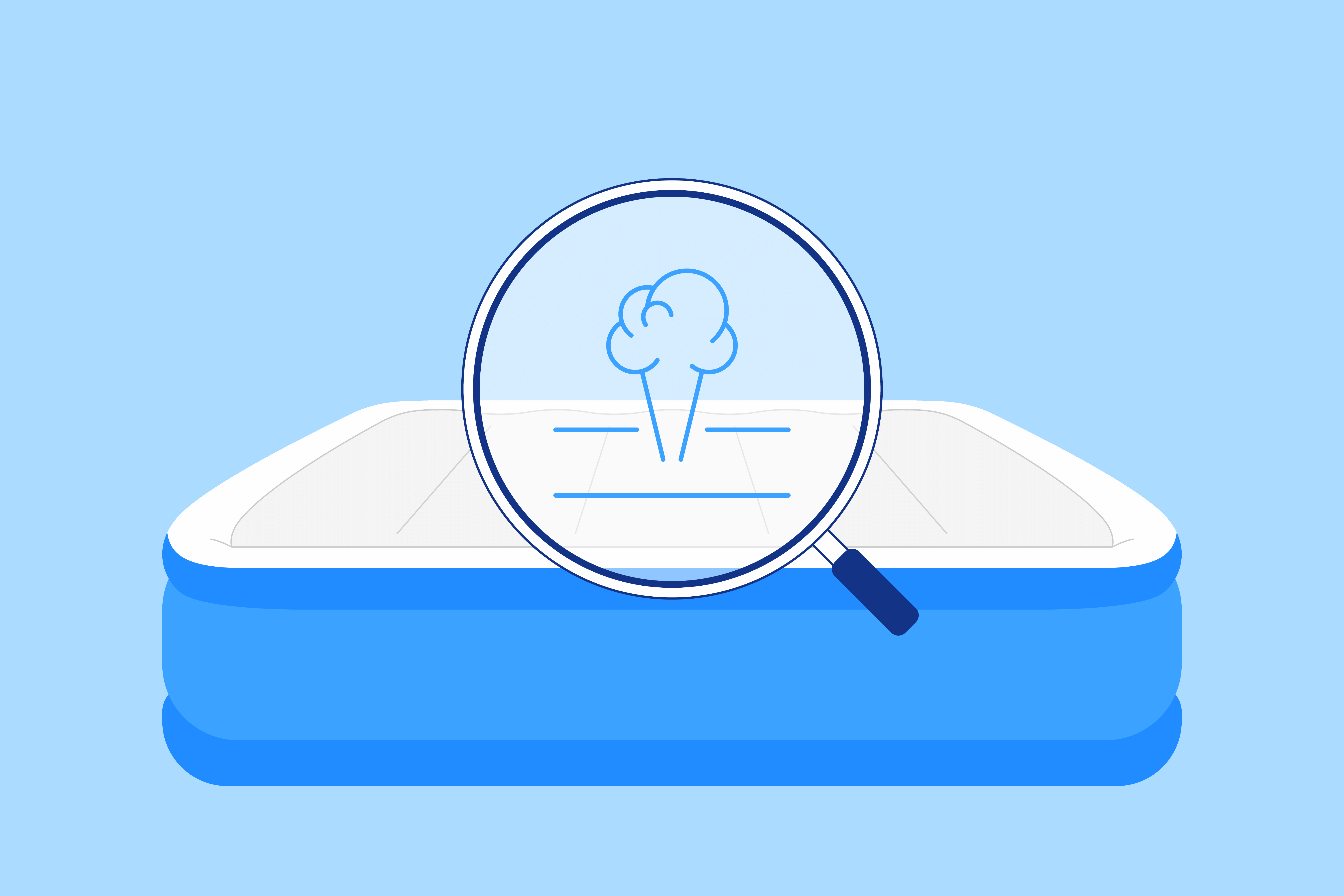Key Takeaways
- Specialized Design: Hospital bed mattresses are specifically designed to cater to the unique needs of patients, offering features like pressure relief, temperature regulation, and support to aid in recovery and comfort during extended periods of bed rest.
- Compatibility Concerns: While it might be tempting to use a regular mattress on a hospital bed, factors like size, support, and functionality should be considered. Regular mattresses may not provide the necessary features for medical purposes and may not fully utilize the adjustable features of hospital bed frames.
- Alternative Options: If a regular mattress isn’t suitable for a hospital bed, alternative options like foam mattresses, air mattresses, low air loss mattresses, and alternating pressure toppers are available. These alternatives offer specialized features to address specific medical needs and enhance patient comfort.
When it comes to hospital beds, comfort and support are paramount. But what if you’re wondering whether you can use a regular mattress on a hospital bed? Is it a feasible option or a recipe for discomfort?
In this article, we dive deep to explore the compatibility and implications of using a regular mattress on a hospital bed. So, before you make any decisions, let’s examine the facts and separate myths from reality. Are regular mattresses suitable for hospital beds? Let’s find out!
Understanding Hospital Bed Mattresses
Hospital bed mattresses are designed to cater to the unique needs of patients in healthcare settings, providing the necessary support and comfort.
These specialized mattresses come in various types, each serving a specific purpose. One common type is the foam mattress, which offers excellent pressure relief and contouring to the patient’s body. Foam mattresses are often preferred for their ability to distribute weight evenly and prevent the formation of pressure ulcers. Verified Source National Library of Medicine (NIH) World’s largest medical library, making biomedical data and information more accessible. View source
Another type of hospital bed mattress is the air mattress. These mattresses are adjustable, allowing for individualized pressure management and optimal comfort. They work by distributing air pressure through a series of interconnected air cells, which can be adjusted to provide the desired firmness and support.
For patients with specific medical conditions, there are specialized hospital bed mattresses available. These include low air loss mattresses, which can help regulate temperature and moisture to prevent skin breakdown, and alternating pressure toppers, which cyclically change pressure to promote circulation and reduce the risk of pressure ulcers.
When choosing a hospital bed mattress, factors such as the patient’s medical needs, comfort preferences, and the prevention of pressure ulcers Verified Source National Library of Medicine (NIH) World’s largest medical library, making biomedical data and information more accessible. View source must be taken into consideration.
“While it may seem convenient to use a regular mattress on a hospital bed, it’s crucial to consider compatibility and safety, Verified Source National Library of Medicine (NIH) World’s largest medical library, making biomedical data and information more accessible. View source ” says Dr. Jordan Burns. “ Hospital beds Verified Source U.S. Food & Drug Administration (FDA) Part of America’s Department of Health and Human Services and dedicated to providing accurate health information. View source are designed to adjust and flex in ways regular beds do not, often necessitating a mattress that can flex without damage.”
“Using an incompatible mattress can impair the functionality of the bed’s adjustments, potentially compromising patient care by restricting mobility and adjustment features essential for recovery.”
The Importance of a Proper Hospital Bed
For patients requiring extended periods of bed rest or those with medical conditions that limit mobility, a proper hospital bed can make a world of difference. Home hospital beds are designed with features that cater to the unique needs of patients, providing comfort, support, and convenience.
A comfortable mattress is a crucial part of these sleep setup. These hospital bed mattresses are specifically designed to offer optimal support and pressure relief, helping to prevent the development of pressure ulcers and promoting proper alignment of the body.
Moreover, a proper hospital bed can also provide added safety and convenience for caregivers. With adjustable features such as height adjustments, backrest inclination, and even bed railings along to side, home hospital beds make it easier to provide care and assistance to patients.
Whether it’s an elderly family member in need of long-term care and a mattress for seniors or a patient recovering from surgery, investing in a comfortable hospital bed and mattress is a decision that can greatly improve their quality of life. It ensures that they are able to rest and recover in a supportive and comfortable environment, promoting faster healing and a smoother recovery process.
“Hospital mattresses are designed to prevent pressure ulcers and assist in patient management, features that regular mattresses typically do not offer,” said Dr. Burns. “The materials Verified Source National Library of Medicine (NIH) World’s largest medical library, making biomedical data and information more accessible. View source and construction of hospital mattresses promote better air circulation and reduce the risk of bedsores, crucial for patients confined to bed for long periods.”
“Using a regular mattress might negate these health benefits, significantly impacting patient outcomes.”
Can You Use a Regular Mattress on a Hospital Bed?
When it comes to using a regular mattress on a hospital bed, compatibility is a key concern. Hospital bed frames often have different dimensions and requirements compared to regular bed frames. While it may be tempting to simply place a regular mattress on a hospital bed, there are important factors to consider.
Firstly, the size of the regular mattress may not align with the dimensions of the hospital bed frame. Hospital beds are typically designed to accommodate specific hospital bed mattress sizes, such as twin mattresses or specialized sizes. Placing a regular mattress that is too large or too small can lead to discomfort and instability.
One common type are innerspring mattresses which use a network of metal coils to provide support and durability, making them a popular choice for comfortable sleep in hospitals.
Beyond considerations of mattress sizes, regular mattresses may not provide the necessary support and features needed for medical purposes.
Hospital bed mattresses are designed to offer pressure relief, prevent pressure ulcers, and provide adequate support for patients with specific medical conditions or mobility restrictions. Regular mattresses may not have these essential features and could compromise patient comfort and well-being.
Furthermore, the structure of hospital bed frames differs from regular bed frames, often featuring adjustable features and mechanisms to cater to specific medical needs. Regular mattresses may not fully utilize the functionalities of hospital bed frames, limiting the patient’s ability to adjust the bed for comfort and positioning.
Hospital bed mattresses also have special covers Verified Source U.S. Food & Drug Administration (FDA) Part of America’s Department of Health and Human Services and dedicated to providing accurate health information. View source to prevent any bodily fluids from seeping inside Verified Source U.S. Food & Drug Administration (FDA) Part of America’s Department of Health and Human Services and dedicated to providing accurate health information. View source the mattress and contaminating Verified Source National Library of Medicine (NIH) World’s largest medical library, making biomedical data and information more accessible. View source the bed, a feature that regular mattresses can’t match on their own.
While it is technically possible to use a regular mattress on a hospital bed, we recommend you choose a mattress specifically designed for hospital beds.
“It’s also important to consider the regulatory and warranty aspects,” said Dr. Burns. “Hospital beds and mattresses must meet certain regulatory standards, which regular mattresses may not fulfill.”
“Moreover, using a non-compatible mattress can void warranties on hospital beds, as research backed Verified Source American Academy of Sleep Medicine Part of America’s Department of Health and Human Services and dedicated to providing accurate health information. View source by the American Academy of Sleep Medicine underscores the importance of using medically approved mattresses to maintain hospital beds’ integrity and therapeutic benefits.”
Alternatives to Regular Mattresses for Hospital Beds
If you find that a regular mattress is not suitable for your hospital bed, don’t worry – there are alternative options available that can provide the comfort and support you need.
You can choose from four types of hospital mattresses. Let’s explore some of these alternatives!
Foam Mattresses
A foam mattress is a popular choice for hospital beds due to its excellent pressure redistribution properties. These mattresses are made from high-density foam that conforms to the body, providing optimal support and comfort. Foam mattresses can help prevent pressure ulcers and relieve pain, making them a great option for patients who need extra cushioning.
Air Mattresses
Air mattresses for hospital beds are different from a cheap model you might use to sleep well while camping. These types of air mattresses offer customizable support as they are adjustable to individual preferences.
These mattresses have air chambers that can be inflated or deflated to achieve the desired level of firmness or softness. They also provide excellent pressure relief and are particularly beneficial for patients with pressure ulcers or circulation issues.
Low Air Loss Mattresses
Low-air loss mattresses are specifically designed to manage excessive moisture and heat, making them ideal for patients who require enhanced skin microclimate control.
A low air loss mattress distributes the weight more evenly across the body, reducing the risk of developing painful pressure ulcers. These mattresses have multiple air cells that constantly circulate air, reducing the risk of skin breakdown and promoting a dry and comfortable environment.
Alternating Pressure Toppers
In some cases, a regular hospital bed mattress can be paired with an alternating pressure topper. This topper works well because it consists of air-filled cells that alternate in pressure, Verified Source National Library of Medicine (NIH) World’s largest medical library, making biomedical data and information more accessible. View source providing intermittent pressure relief to different areas of the body.
This helps prevent pressure ulcers and promotes better blood circulation.
High-Density Foam Toppers
High-density foam overlays or toppers can be added to a regular hospital bed mattress to enhance its support and comfort. These foam layers provide extra cushioning and pressure redistribution, ensuring optimal relaxation for patients.
Factors to Consider When Choosing a Hospital Bed Mattress
When it comes to selecting a mattress for your hospital bed, there are several crucial factors to keep in mind. The right choice can make a significant difference in your comfort, pressure relief, and overall well-being. Let’s take a closer look at the key considerations to guide your decision-making:
Medical Mattress
A medical mattress is specifically designed to cater to the unique needs of patients. These specialized mattresses provide the necessary support and pressure relief to prevent discomfort and promote better sleep quality. Investing in a medical mattress ensures that your hospital bed is optimized for your specific medical condition.
Pressure Relief
One of the most critical factors in selecting a hospital bed mattress is its ability to provide pressure relief. This feature is vital in preventing the development of pressure ulcer. Look for a mattress for pressure points that distribute your body weight evenly and reduce the risk of skin breakdown, especially if you spend extended periods in bed.
Adjustable Features
Consider opting for a hospital bed mattress with adjustable features. These allow you to modify the bed’s positioning, providing personalized support and comfort. Similar to adjustable beds, these hospital beds can can alleviate pain, aid in circulation, and offer more flexibility in finding the most comfortable sleeping position for your specific needs.
Preventing Pressure Ulcers
Preventing pressure ulcers (also known as bed sores) is of paramount importance, especially if you are confined to a hospital bed for extended periods. Look for a mattress that uses innovative technologies such as air cells or foam layers, specifically designed as mattresses to prevent pressure ulcers.
These features distribute pressure more effectively and reduce the likelihood of developing painful and potentially serious ulcers.
Can I Transition from an Hospital Bed to a Regular Bed?
Yes, transitioning from an at-home hospital bed to a regular bed is possible, but it depends on your specific medical condition and the advice of your healthcare provider. As your health improves and you require less specialized care, your doctor may recommend transitioning to a regular bed.
Before making the transition, consider the following factors:
- Medical stability: Ensure that your health condition has stabilized and you no longer require the specialized features of a hospital bed, such as adjustable positioning or side rails.
- Mobility: Assess your ability to get in and out of a regular bed safely. If you have limited mobility, you may need assistance or adaptive equipment to make the transition easier.
- Comfort: Regular beds may not offer the same level of comfort and support as hospital beds, particularly if you have specific medical needs. Consider using supportive mattresses, pillows, or cushions to ensure your comfort.
- Home layout: Evaluate your home’s layout to ensure that a regular bed can fit comfortably in your room and that you have adequate space to move around safely.
Always consult with your healthcare provider before making the transition from an at-home hospital bed to a regular bed. They can assess your individual needs and provide guidance on the best course of action for your recovery and well-being.
FAQs
How can I make my hospital bed more comfortable?
Consider using a mattress topper for extra cushioning and pressure relief. Soft, breathable linens and comfortable pillows can enhance the overall feel. Additionally, adjusting the bed’s position to meet your specific comfort needs, such as elevating the head or feet, can significantly improve your comfort during extended periods.
Can you use a regular mattress on an adjustable bed?
Yes, many regular mattresses are compatible with adjustable beds. However, it’s crucial to ensure that the mattress is flexible enough to bend and move with the bed’s adjustments. Memory foam and latex mattresses, as well as some hybrid models, are often suitable.
Always check with the mattress manufacturer or mattress retailer to confirm the mattress’s compatibility with an adjustable bed to prevent any potential damage.
What type of mattress is best for bedridden patients?
The best mattress for bedridden patients should provide optimal support and pressure relief. Memory foam mattresses are often recommended by medical experts for their ability to contour to the body’s shape, reducing pressure points and preventing bedsores.
Additionally, mattresses with adjustable firmness levels may accommodate individual preferences. Consider consulting with healthcare professionals for personalized recommendations based on the patient’s specific health conditions and needs.
Can you use a mattress topper on a hospital bed?
Yes, you can use a mattress topper on a hospital bed to improve comfort. It’s essential to select a topper that matches the bed’s dimensions and meets any medical requirements. A hospital bed mattress topper boosts comfort and support on top of the mattress, making sleep better for patients.
Adding a mattress topper can provide an extra layer of softness and support, enhancing the overall quality of sleep for the patient.
What are the disadvantages of hospital beds?
Hospital beds may have a potentially high cost, along with a bulky design and an overall lack of aesthetic appeal. Some users may find the mechanical aspects of the bed, such as noise or discomfort, to be additional drawbacks. The reliance on electrical power and the need for regular maintenance are also important considerations.
Will a memory foam mattress work on a hospital bed?
While memory foam mattresses can be compatible with certain hospital beds, it’s crucial to check for suitability with the bed’s adjustable features. Ensure that the memory foam mattress doesn’t impede the bed’s functionality. Consult the bed manufacturer or healthcare professional for specific recommendations on mattress compatibility.
Conclusion
While it may be possible to use a regular mattress on a hospital bed, experts generally recommend to choose a mattress specifically designed for hospital beds. These mattresses offer the necessary support, pressure relief, and comfort for patients with medical needs.
Hospital bed mattresses are designed to prevent pressure ulcers, a common concern for patients who require extended bed rest. They often come with adjustable features that allow caregivers to customize the bed to meet the patient’s specific needs.
By selecting the right mattress, patients can experience enhanced comfort and better overall health outcomes. Medical mattresses offer specialized features such as pressure-relieving materials, low air loss technology, and alternating pressure toppers, all of which contribute to improved patient comfort and well-being.
About the author
Geoff McKinnen is a writer focusing mainly on the healthcare industry and has written articles on everything from foods to help you lose weight to the connection between Alzheimer’s and sleep. Geoff’s passionate about helping readers improve their well-being to lead happier lives. Outside of work, Geoff enjoys cycling and hiking and believes that by leading a healthy lifestyle, he can help others do the same.
View all posts





